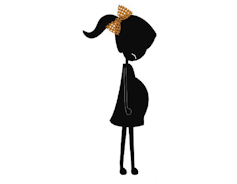In Costa Rica, women have had the right to abortion since 1970. Well, more or less.
The concept of the “unpunished abortion”, established in article 121 of the penal code, permits the termination of a pregnancy as long the procedure is consensual, performed by a doctor (or, if necessary, by an authorised obstetrician), and is the only way to protect the life or health of the woman.
This is commonly called a “therapeutic abortion”. And while it may be technically permissible, in practice the public hospitals where most Costa Ricans receive care refuse to offer the procedure except when a woman’s life is in imminent danger. As in the case of an ectopic pregnancy, for instance.
For many women whose pregnancies constitute a physical or emotional risk – including women carrying deformed fetuses that will never survive outside the womb, rape victims, and pregnant girls – abortion is never an option.
This difference between the law and social practice is now the source of a legal battle that is dividing Costa Rican society. The case is in question involves a 12-year-old girl known under the pseudonym Andrea, who was impregnated by her father and prevented from terminating her pregnancy.
Not a secular nation
It exemplifies the contradictions of this Central American country.
On the one hand, Costa Rica boasts a very low maternal mortality rate, has ratified most international human rights treaties (whose requirements are privileged above its own national constitution), and decommissioned its army in 1948 to invest instead in health and education.
On the other, the majority-Catholic country is not secular. And abortion continues to be taboo for health-care workers. As a result, the reproductive rights of women and girls are not real rights but “blue” laws – unheeded statutes that exist on paper only.

In Andrea’s case, the lack of a technical protocol that provides legal protection to doctors who perform abortions meant that the medical procedure, which isn’t only not criminal but legally guaranteed, was never offered.
The girl’s life story started making headlines in February 2017 when her mother, using the only resource at her disposal to try to activate the judicial system, went public about the sexual violence Andrea had suffered from her father.
As Andrea’s mother put it, “After she told me about what happened with her father, she became extremely anxious and told me she didn’t want to exist in this world any longer because of everything that had happened.”
Andrea is depressed, says her mother, barely eating, suffering extreme nausea from the pregnancy and – critically – says she does not want to have the baby.

Rise of the religious right
Rather than call for Costa Rican law to be enforced, the media has offered a platform for religious figures to voice their opinions. The public debate about Andrea’s case is being approached not from a medical or legal perspective but via a Christian viewpoint.
Churches and anti-choice organisations have contacted the girl and her mother, trying to convince them not to pursue the idea of terminating the pregnancy.
But there have also been some offers of help. The Asociación Ciudadana ACCEDER, of which I am a member, offered legal counsel to help Andrea’s family make her case to the government.

But, in general, the public discourse around Andrea’s situation is one in which the words of religious leaders, originally published in national media outlets, have been reiterated throughout Costa Rican society.
The case demonstrates that even when confronted with a 12-year-old incest victim, who says that she wants to die and to abort her pregnancy, Costa Rica’s legal and medical establishment do not offer legal or medical responses. The country has shown itself immersed in prejudice, stereotypes and traditional gender roles, insisting that women carry a pregnancy to term even when it is clearly affecting their life and health.
This goes completely against the recent recommendations from the Organisation of American States’ Expert Committee that follows up on the Belém do Pará Convention on sexual violence and child pregnancy.
A regional issue
Other Central American countries, including Honduras, El Salvador and Nicaragua also violate women’s rights by outlawing abortion under any circumstances, even when a woman’s life is in danger.
In Costa Rica, we thought we were different from our neighbours who disdain a woman’s life and health. After all, national laws allow abortion to protect not just the life of the woman but also her health as defined by the World Health Organization to cover well-being in the holistic – emotional as well as physical – sense.
But it turns out that’s not enough to guarantee access to abortion for those legally entitled to it. Costa Rica is no model state in protecting women’s rights.

Strategic litigation will be abortion rights’ groups’ main vehicle for change, as it was in recent years following the cases of Ana and Aurora, two Costa Rican women denied abortions despite having dangerously malformed fetuses.
They took their cases to the Inter-American Commission on Human Rights and described the torture of carrying a fetus that could never survive birth; of having their wombs act as tombs for their unborn babies; and the suffering it was causing not just them but also their fetuses.
“He was drowning in my stomach for weeks,” 32-year-old Aurora told La Nación newspaper, “with his lungs outside his body, ripped open by my own organs.”
The highly visible international cases of Ana and Aurora have compelled the Costa Rican government to write a technical norm that it insists will further enshrine legal protection for medical personnel who perform an abortion to avoid endangering the life and health of a pregnant woman.
And none too soon; stories of dangerous clandestine abortions circulate.
As for Andrea, she will become a mother at 13, giving birth to her father’s child.

